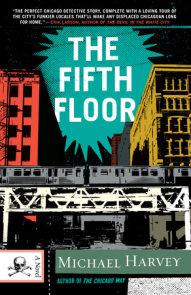READERS GUIDE
The questions, discussion topics, and reading list that follow are intended to enhance your reading group’s discussion of Carry Me, the captivating and poignant new novel by the acclaimed author of The O’Briens.Questions and Topics for Discussion
1. The novel opens with an epigraph, a line from W. B. Yeats: “In dreams begin responsibility.” What does this mean? How does it figure into the novel?
2. “It’s an extraordinary impulse in one that age to confront something as enormous and active as the sea without feeling the least intimidated. Karin was determined to enter that wild world and leave behind the calm and safety of shore” (page 11). What does Karin’s attempt to swim to America reveal about her character? How does that aspect of her personality evolve throughout the novel?
3. Each section opens with a selection of archival materials concerning the characters. What purpose do these letters and diary excerpts serve?
4. The theme of guilt weaves through the story. Which characters feel it most deeply, and which don’t seem to feel guilty enough?
5. Behrens plays with time, moving forward through the events of 1938 while also telling Billy’s and Karin’s stories from the beginning. What impact does this have on the reader?
6. Why do Karl May’s books entrance Billy and Karin so much? What does the myth of the Old West mean to them?
7. “ ‘The thing with bad news, when you hear it, is keep it inside, Billy. Hold it inside, don’t let no one else see it, Billy, and be brave’ ” (page 56). Hamilton offers this advice to young Billy—does he heed it? When does it prove most useful?
8. For many characters—Billy, Karin, Buck, Eilín, and Krebs among them—clothing plays a crucial role in how they see themselves and in how others treat them. What point is Behrens making?
9. At different points in the novel, parents sacrifice for their children. At what point do the tables turn and the children begin to sacrifice for their parents?
10. Billy is a refugee during World War I, and later Karin works to help Jewish refugees escape Hitler before becoming a refugee herself. How does Billy’s childhood refugee experience help him in 1938?
11. What influence, intentional or not, do Billy’s Irish grandparents have over his life decisions?
12. What is the significance of Billy’s name change?
13. Why does the scene at Karin’s brother’s grave (pages 209‒210), when she implores Billy to strip, and eventually, “Carry me,” have such resonance for Billy? Why is the novel called Carry Me?
14. How does Buck’s time at Alexandra Palace influence his response to Hitler’s rise?
15. Several peripheral characters reappear throughout the novel—Krebs, Kaufman, Anna von Rabou, Mick. What does each one represent?
16. The dream of crossing el llano helps Billy and Karin through some of their most difficult times. Billy writes, “Escapism? Of course it was. Escapism was for realists in Frankfurt then. Escapists saw things plain” (page 298). How does this dream help him?
17. Why is The Lamentation so important to Karin? What does it signify?
18. After the war, Billy decides to study geography and literature together. “I wanted to investigate in a rigorous way the hold particular regions have on the imaginations of artists,” he writes (page 435). How does this relate to what Behrens does in this novel? Which region has the firmest hold on his imagination?
19. How does the reality of el llano contribute to Karin’s decision at the end of the novel?
20. Why does Billy hold on to Karin’s belongings for so many years?
21. Behrens has Billy choose to end the story in a moment of pure happiness. Why?
Suggested Reading
Martin Amis, Time’s ArrowMargaret Atwood, The Blind Assassin
Pearl S. Buck, The Good Earth
Michael Cunningham, The Hours
Karl May, Winnetou
Ian McEwan, Atonement
Kazuo Ishiguro, The Remains of the Day
Michael Ondaatje, The English Patient
Virginia Woolf, Mrs. Dalloway




















